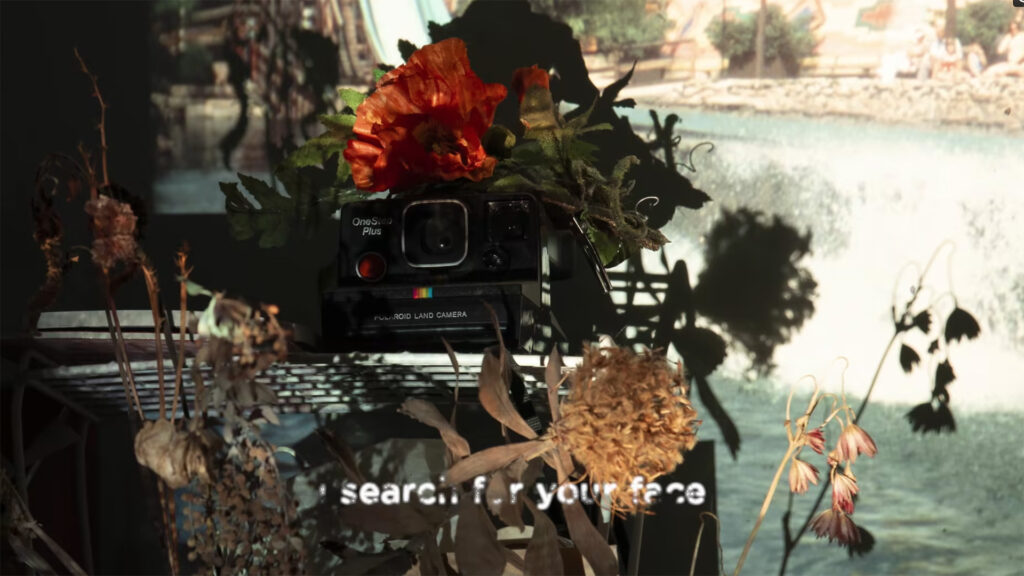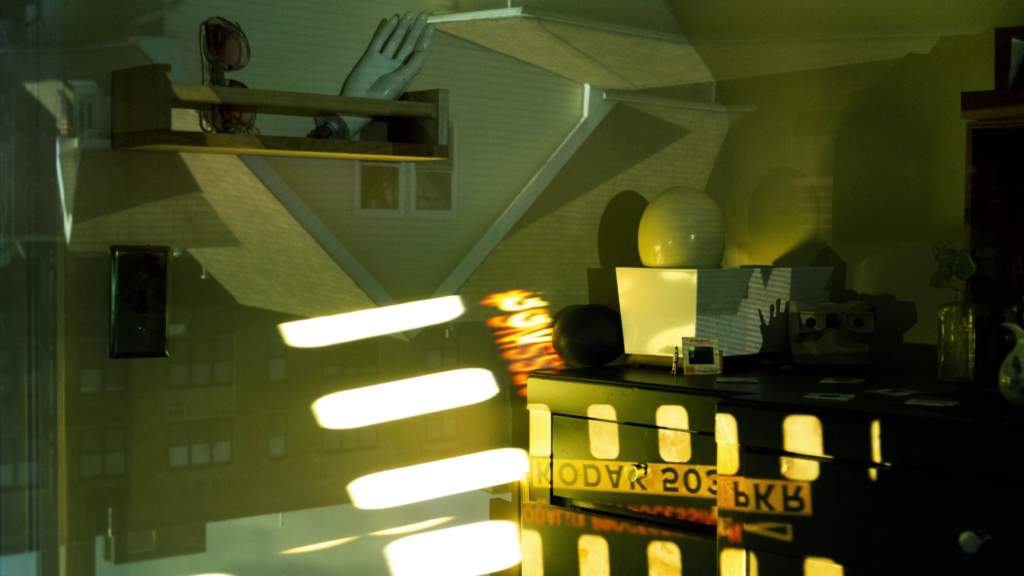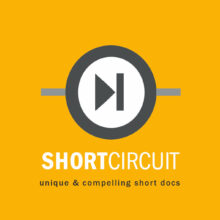
Brooklyn based filmmaker Nate Dorr has ‘operated a neuroscience lab, documented the DIY music scene, curated multiple film festivals and has shown recent work at festivals including Doc NYC, Ji.hlava, Alchemy & Antimatter [media art]. His film Light Leak screened in Reinvention at Fabrica (April 2023)
Q. How did you want the film to be perceived within the theme of reinvention?
A. One of the many starting points for this project was an attempt to transform the mundane circumstances of a living space. It was January 2021, and Covid was in the midst of its largest spike. While I hardly stayed indoors all month despite that, when I was home, it was hard not to think about the place in a different light, just as in those earliest months of isolation and quarantine the prior year. I also had the apartment to myself due to my then-partner being away for a self-imposed residency for the month, so I had time to really re-examine the spaces I occupied every day. I found ways to transform them with light, I built up ordinary clutter and found objects into elaborate still life compositions, I invented new meanings of for the familiar. The film contains many things, but it certainly reinvents my home throughout.
Q. Where did the idea for Light Leak originate?
A. Also that month, I was taking a remote winter class as part of a program at Hunter College. I built a camera obscura at one end of the apartment for an assignment, then found I couldn’t stop playing with it. My first plan was to create a series of photographs collaging images in-camera, but lying in the dark waiting for multi-minute exposures to develop with only a pinhole of light, my mind wandered and built up various conflicting stories around the process. Everything started from the camera obscura, though. Even the title — I spent hours in the dark gaff-taping out every bit of light leaking through seams in cardboard or around the edges of curtains.
Q. Where was it filmed?
A. Entirely within my not-especially-large Brooklyn apartment.
Q. Why tell it as a ‘science fiction’? Does this fit with your approach to other films?
A. Is it science fiction? I’ve been referring to Light Leak as a science fictional essay film, but the scientific basis of everything I mentioned is sound enough, I just expanded upon reality the way a mind in isolation begins to distort and magnify its stimuli. It’s a fiction, but I tried to leave it open enough that it could just as easily be taken as a quarantine psychodrama as a post-apocalyptic journal-from-the-bunker. Science fiction has a lot of give and possibility, though, if you’ll let it, so it’s a good general frame.
Q. The film is unexpectedly very moving. It has a very personal feel. Is there a hidden autobiographical narrative in the images?
A. Nearly everything is materially impersonal — the slides are all found objects from a city planning organization, the photographs are of strangers and collected from yard sales or antique stores, many of the objects are likewise odd, acquired items without any essential importance. And the story was written in the dark of the camera obscura as a multiplication of possible narratives. Nonetheless, the feeling that comes through is all too real. It’s a film about endings and the things that go on after. In the science fiction version that’s the end of the sun, or the earth, or the universe, but it’s equally a breakup film, narratively, and, well, actually. It hadn’t fully happened yet, but we were both aware of the inevitability, and it hangs over the film. Incidentally, my former partner still thinks it’s my best work. It certainly couldn’t exist without her presence.

Q. What is the significance of the days. did you always intend to use subtitles or was voiceover a consideration?
A. The days were there from the moment I started sifting through the footage to create the edit. At first, I just needed something to structure and delineate what began as a bunch of disconnected visual experiments. But the passage of time, to the point where the count becomes illegible, is essential to the themes around deterioration (of memory, of information, of interpersonal connection) and to the isolation of quarantine. There was never any voiceover recorded, I liked the visual poetry of distilling whole lines of thought down to a handful of onscreen words. I think removing the human voice (just as you never see the narrator or anyone else) makes it both more isolating, and more universal. And working with the subtitles as part of each frame of the film rather than as a secondary overlay opened opportunities to embed extra meaning in the typography itself.
Q. How long did it take to make the film? How many of your original ideas decayed over that time?
A. It was mostly made in one month, the original edit was about 7 minutes. I got a lot of very good feedback from classmates and friends around then, but let it sit and simer for a while, and then in the following summer I stayed up for a number of nights (the camera obscura was long de-installed by then, and I didn’t want any natural light to creep in) creating or replacing the last few scenes I felt it still needed. I revised and tightened the script, and finally recut everything to exactly 8 minutes and 20 seconds, the time that it takes sunlight to reach the earth. The core of the film, though — the major imagery, the research, the story in its many multiple possibilities — didn’t change at all. I try not to overdetermine my work and I didn’t plan the film rigorously, it all came together quite organically as the ideas echoed from image to word and back. Usually, this doesn’t work very cohesively, but this time I felt like it had and I didn’t want to disturb the fortuitous balance.
Stills from Light Leak (2021). Images courtesy of the filmmaker
